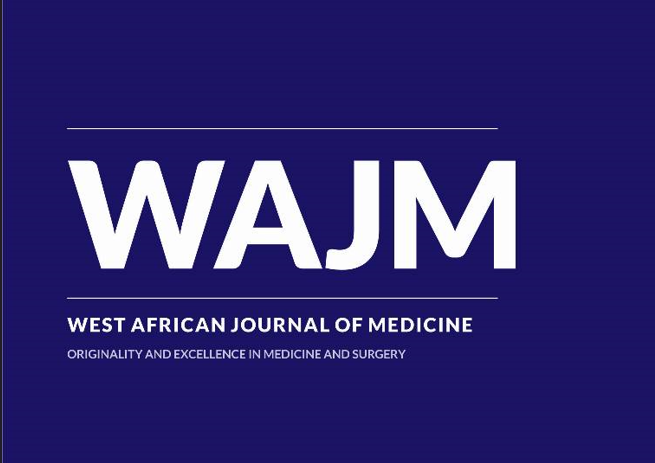ORIGINAL: Infection Prevention and Control: Baseline Knowledge and Practices of TBAs in Rural Kano, Northwestern Nigeria
West African Journal of Medicine 2024 February; 41(2): 175-182 PMID: 38581696
Keywords:
Maternal Infection, Maternal Mortality, Nigeria, Traditional Birth AttendantsAbstract
Background: Maternal infections remain a significant contributor to maternal mortality worldwide. Majority of births in northern Nigeria occur at home and are attended by Traditional Birth Attendants (TBAs). Little has been documented about their knowledge and practice on infection prevention and control practices in Kano, northern Nigeria.
Objectives: This study evaluated the level as well as factors associated with TBAs' infection prevention and control knowledge and practices.
Methods: The study is the baseline phase of a quasi-experimental study, conducted in a rural LGA in Kano State, Nigeria. Using an adapted tool, 163 eligible TBAs were surveyed. Knowledge and practice of IPC were scored, aggregated, and dichotomized into good or poor. Binary logistic regression analysis was used to predict knowledge and practice of IPC.
Results: Majority (79.1%) of the TBAs exhibited poor IPC knowledge but many (78.5%) reported good practice. Good knowledge of IPC was predicted by the TBAs' age: a six-fold increased likelihood (AOR=6.25, 95% CI: 1.02- 38.53) and almost five-fold increased likelihood (AOR=4.75, 95% CI: 1.39- 16.24) for those in their second and fourth decades of life. TBAs who reported poor practice of IPC were 83% less likely (AOR=0.17, 95% CI: 0.03- 0.92) to have good knowledge of IPC. TBAs' practice was only linked to previous training (AOR=0.17, 95% CI: 0.04- 0.76).
Conclusion: TBAs knowledge of IPC was low although reported practice was good. The need for tailored training interventions to enhance knowledge and skills for safe delivery care is paramount to improve maternal and neonatal outcomes.


